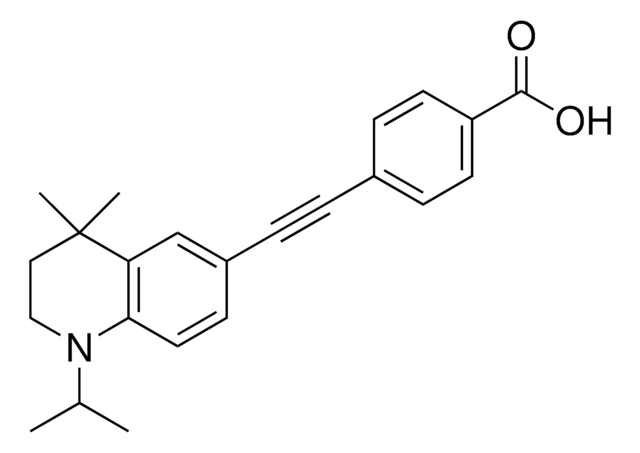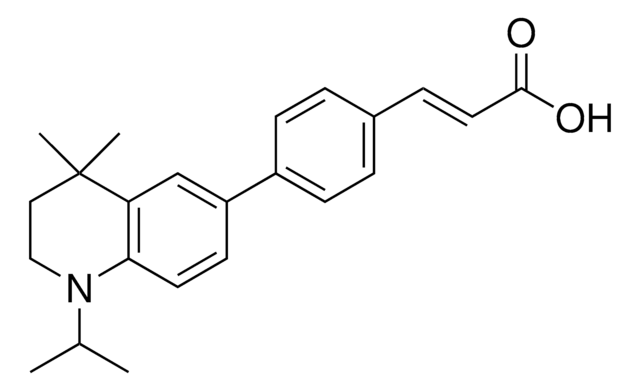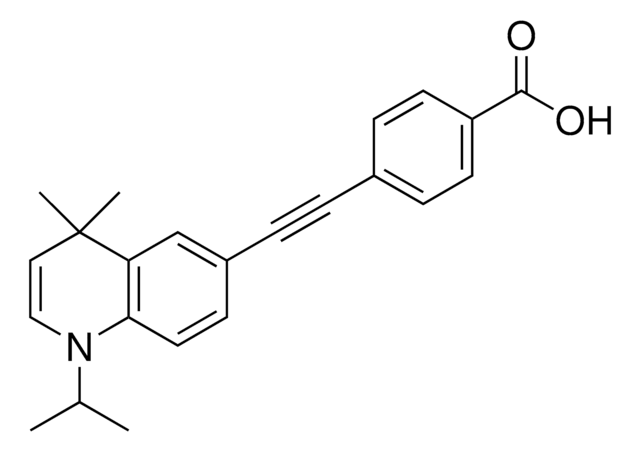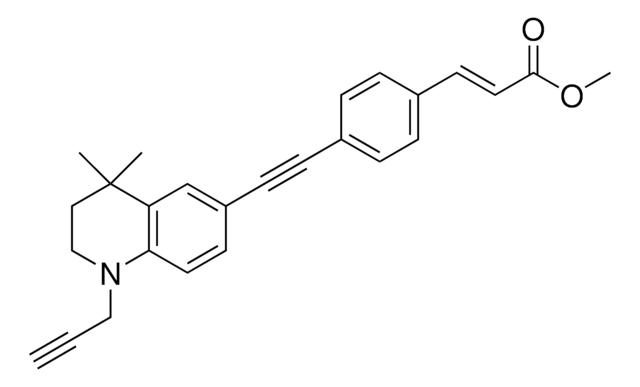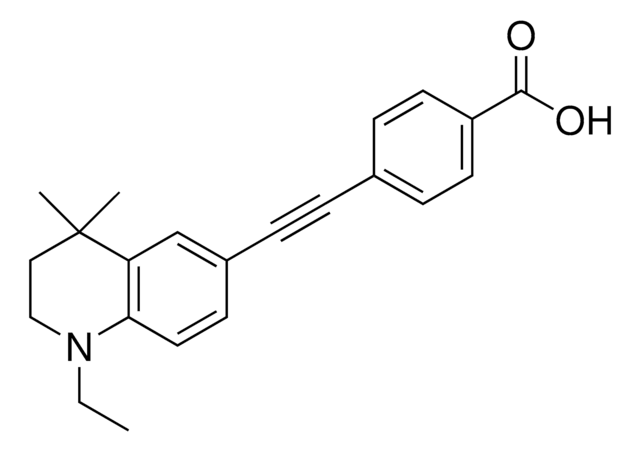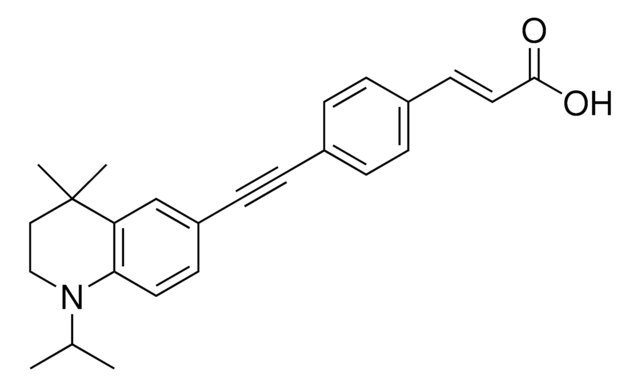All Photos(1)
About This Item
Empirical Formula (Hill Notation):
C21H21NO2
CAS Number:
Molecular Weight:
319.40
UNSPSC Code:
12352101
NACRES:
NA.22
Recommended Products
Assay
≥95% (HPLC)
form
powder
storage temp.
2-8°C
Related Categories
Application
Fluorescence microscopy, fluorescent retinoid binding assay, fluorescence spectroscopy.
Biochem/physiol Actions
Strong ligand for retinoic acid receptor proteins
Features and Benefits
LightOx21 is a synthetic analogue of all-trans-retinoic acid (ATRA), that exhibits solvatochromatic fluorescence emission when excited with UV or 405 nm light. The compound is a strong ligand for the retinoic acid receptor proteins (RARs) and related cellular retinoic acid binding proteins (CRABPI/II) and can, therefore, be used as a replacement for ATRA in cellular assays involving retinoid signaling processes. LightOx21 can be utilised to study retinoid behaviour using fluorescence microscopy, employed in a competitive fluorometric ligand-binding assay for direct determination of the strength of binding of non-fluorescent retinoids to a protein target, and as a fluorophore in fluorescence spectroscopy.
Product can be used with our line of photoreactors: Including Penn PhD (Z744035) & SynLED 2.0 (Z744080)
Product can be used with our line of photoreactors: Including Penn PhD (Z744035) & SynLED 2.0 (Z744080)
Other Notes
Chemical Equivalency 1ea=1mg
Legal Information
LightOx is a trademark of LightOx Ltd.
Storage Class Code
11 - Combustible Solids
WGK
WGK 3
Flash Point(F)
Not applicable
Flash Point(C)
Not applicable
Choose from one of the most recent versions:
Certificates of Analysis (COA)
Lot/Batch Number
Sorry, we don't have COAs for this product available online at this time.
If you need assistance, please contact Customer Support.
Already Own This Product?
Find documentation for the products that you have recently purchased in the Document Library.
Articles
Fluorescent retinoic acid analogues for use in cellular imaging, protein-ligand binding assays, and flow cytometry to bypass traditional problems associated with fluorescent probes.
Our team of scientists has experience in all areas of research including Life Science, Material Science, Chemical Synthesis, Chromatography, Analytical and many others.
Contact Technical Service